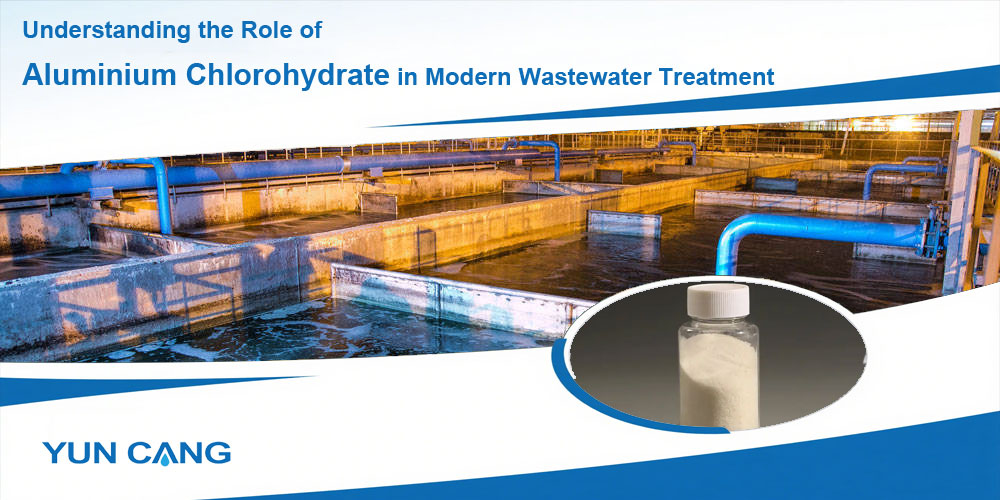Aluminium Chlorohydrate is a highly efficient coagulant widely used to purify water and improve treatment results. Aluminium Chlorohydrate clarifies water by removing turbidity, color and suspended impurities.
Aluminium Chlorohydrate is usually available in liquid or powder form. It has a high cationic charge and is effective over a wide pH range, making it an efficient coagulator even at low dosages. The main function of ACH is to neutralize the negative charge on suspended particles, causing them to condense into larger flocs. These flocs are easily removed by processes such as sedimentation and filtration.
The high charge density of ACH makes its reaction time faster and the flocs more compact. It is very suitable for high-load industrial wastewater or more complex wastewater treatment.
In wastewater treatment, the effects of ACH are as follows:
Reduce water turbidity
Improve the performance of sludge dewatering
Effectively remove phosphorus and some heavy metals
Application of Aluminium Chlorohydrate in wastewater treatment:
Municipal sewage:
It is widely used in municipal sewage treatment. It can not only effectively remove suspended matter, turbidity and organic matter in water, but also improve the effluent quality and help sewage treatment plants to meet the discharge standards stably.
Before the primary sedimentation tank: assist in removing suspended matter and reduce biochemical load
After the secondary sedimentation tank: deep treatment, further remove phosphorus and organic matter, and prevent eutrophication of receiving water bodies.
Recycled water reuse system: remove suspended matter in water and improve the clarity and safety of recycled water.
Combined sewage and rainwater overflow treatment (CSO): rapid clarification and rapid flocculation.
Industrial wastewater:
ACH is used in the textile, papermaking, dyeing, food processing and electroplating industries to remove color, COD, heavy metals and suspended solids. It is particularly good at treating high COD or oily wastewater.
Printing and dyeing wastewater: rapid decolorization and COD reduction.
Papermaking wastewater: flocculate fine fibers and improve the quality of recycled water.
Electroplating wastewater: precipitate heavy metal ions such as chromium, nickel, copper, etc.
Pharmaceutical/chemical wastewater: treat high concentrations of organic pollutants.
Food/Beverage Wastewater: Assists in oil removal, turbidity removal, and clarity adjustment of effluent.
Sludge Dewatering:
Quickly neutralizes negatively charged colloids to form dense, compressible flocs, thereby reducing cake moisture, specific resistance to filtration (SRF), and capillary suction time (CST), while reducing total sludge volume and polymer requirements.
Advantages of Using Aluminium Chlorohydrate
Compared to other Coagulants, Aluminium Chlorohydrate has the following significant advantages:
Low dosage: High charge density means less dosage is required to achieve the same or better results.
Reduced sludge volume: Less sludge generation means lower handling and disposal costs.
Wide pH range: Effective over a wide pH range (4-10) with the minimum need for pH adjustment.
Low corrosiveness: Unlike ferric chloride or alum, ACH is less corrosive, easier to handle and store, and safer.
Stable performance: Provides consistent results even with varying influent water quality.
Aluminium Chlorohydrate has shown wide applicability and economy in the field of wastewater treatment due to its excellent flocculation performance and adaptability. It not only improves the efficiency of wastewater treatment, but also helps enterprises meet emission standards and reduce treatment costs. It is one of the indispensable water treatment agents in the field of industrial environmental protection. If you are looking for a trustworthy ACH supplier, be sure to choose a partner with reliable technical support, stable quality and global compliance certification.
Post time: Apr-23-2025

